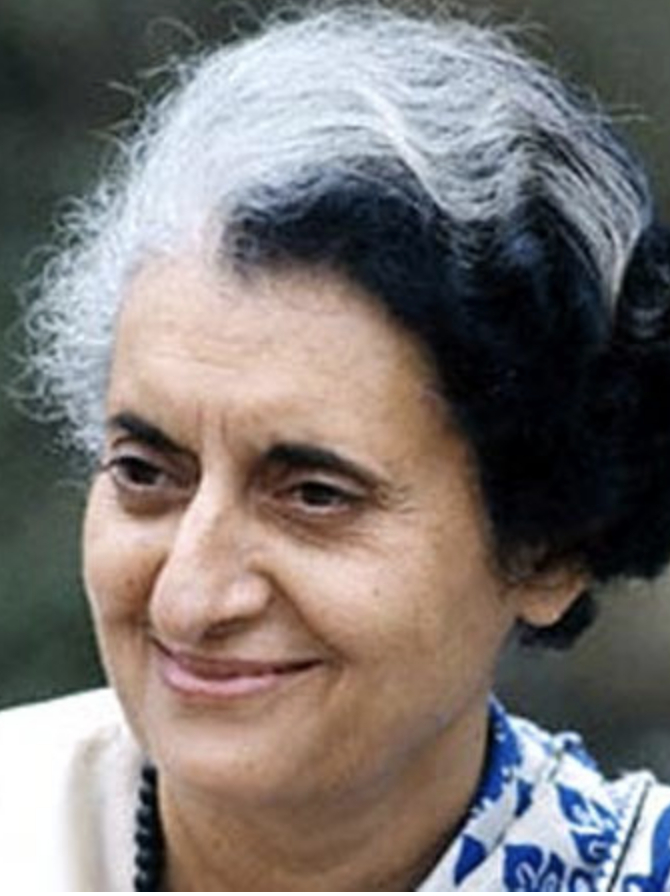On this date in 1917, Indira Gandhi (née Nehru) was born in Allahabad, Uttar Pradesh, India, to a wealthy, upper-caste Brahmin Hindu family. Her father, Jawaharlal Nehru, was India’s first prime minister and popular independence leader. Before completion of her education at Oxford University, Gandhi joined the Indian independence movement, which led to her imprisonment for 13 months on charges of subversion by British colonial authorities.
In 1942 she married a Congress Party militant, Feroze Gandhi, but her marriage suffered as her father took office as prime minister in 1947 and invited her to be his official hostess. In this position she studied the world’s most powerful political elites and in the 1950s began building her own political career. She was elected Congress Party president in 1959 and helped oust the communist government from the southern state of Kerala. She served in the upper house of parliament in 1964 and in 1967 became the first woman leader of a major country in modern times.
As prime minister she strengthened the authority of the federal government and strongly objected to religious sectarianism that, she believed, threatened Indian democracy. While some of her domestic policies were viewed as weak, she managed to keep relative social peace and silence radical opposition movements. She achieved great success in her foreign policy and, after winning reelection in 1971, led India to victory in a bitter war with Pakistan (that also resulted in the birth of Bangladesh).
While her popularity grew among Indians and especially the poor, Gandhi gained a reputation as an authoritarian within her own party. After an Indian court determined her 1971 election was illegitimate, Gandhi declared a state of emergency, suspending civil liberties and jailing thousands of her critics. Facing internal and international pressure, she returned to democratic government in 1977 but the people elected a former rival, Morarji Desai, to replace her.
Desai attempted to destroy Gandhi’s reputation but she fought back by campaigning in rural villages and was elected as prime minister for the fourth time in 1980. Sikh terrorist factions in the Punjab state demanded an independent state, but Gandhi refused to negotiate and in June 1984 ordered an army assault on a militant Sikh temple, which resulted in the loss of over 1,000 lives. Over the next months, Gandhi remained undeterred by numerous death threats from Sikh militants. She told Newsweek, “In politics you simply can’t hide from people. My life has been one with India, and it makes no difference to me if I die standing or in bed.”
Gandhi was gunned down in 1984 in her garden in New Delhi by her Sikh bodyguards. Following her death was a period of extreme tension and bloodshed between Hindus and Sikhs across India. (D. 1984)


